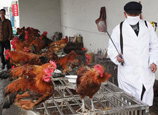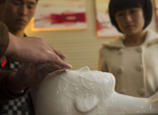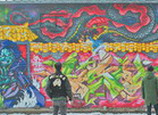
HONG Kong movie star Jackie Chan has stirred a debate over protecting China's culture after he said he was planning to donate four traditional buildings to a university in Singapore.
Chan said the four were part of a collection of 10 Hui-style houses and pavilions he had bought over the past 20 years. The white-walled wood and stone buildings, featuring delicate carvings, are between 200 and 400 years old and currently disassembled and stored in a warehouse.
Hui-style buildings were popular in the Ming and Qing dynasties in the area where the Anhui, Jiangxi and Zhejiang provinces meet. Those that remain are a tourist attraction.
"Originally I wanted to find a place, reconstruct the buildings, and make them home for my parents. But they both passed away in the past decade," Chan said. "The buildings are the essence of Chinese architecture, and it would really be a waste if they can not be displayed and appreciated by people."
He said he had planned to donate the buildings to the Hong Kong government 10 years ago, but it failed to find a place to display them.
Traditional culture
Chan began talks with a government official in Singapore two years ago and it was suggested the buildings be relocated to the Singapore University of Technology and Design.
This would allow students from all over the world "to understand Chinese traditional culture and architecture," Chan said.
But there are conflicting views about whether Chinese relics should be allowed to go abroad.
Li Yongge, an expert at Beijing's Palace Museum, said Chan should not send the buildings abroad if they were cultural relics.
"Currently every province in China has a law to forbid the selling of protected ancient buildings," Li told China National Radio. "But even if the buildings are not subject to law, it is still improper to send them abroad. A piece of art will always lose part of its significance when displaced."
It is not known whether Chan's buildings fall into the cultural relics category.
However, while many online comments were in support of Li's view, others backed Chan's plan to preserve the buildings as they said many ancient buildings in China had been torn down to make way for urbanization.
Meanwhile, the management unit of He Garden, a Qing Dynasty private garden open to the public in eastern Jiangsu Province's Yangzhou City, said that it would be happy to accommodate Chan's collection if he wants the buildings to remain in China.
















 Our luxuriously departed Paper-made "luxury" goods replace paper money as top offerings to the dead during Qingming
Our luxuriously departed Paper-made "luxury" goods replace paper money as top offerings to the dead during Qingming


![]()
